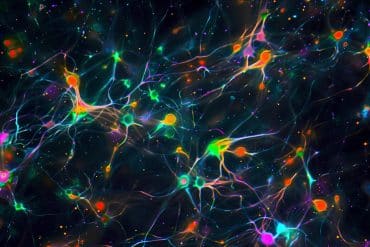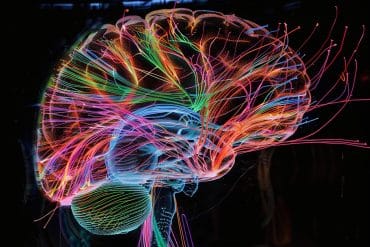Summary: A new study reports the increased risk of mental health problems in children of older dads is unlikely to result from the men’s genes maturing with age.
Source: University of Queensland.
The increased risk of mental illness in children of older fathers is unlikely to result from men’s genes mutating with age, according to new research from The University of Queensland.
Mathematical modelling by Queensland Brain Institute scientists suggests an alternative possibility – that men at high risk of psychiatric disorders may become parents at a later age, in turn passing on genetic risk factors to their children.
QBI Centre for Neurogenetics and Statistical Genomics researcher Dr Jake Gratten said the finding was important as it challenged a long-held assumption that gene mutation in older men resulted in a higher risk of their children having psychiatric disorders such as autism and schizophrenia.
“People have assumed the increased risk of disorders like autism in children of older fathers must be due to the extra mutations they receive from their dads, and that therefore men should have kids when they are young,” Dr Gratten said.
“Our study shows the story is more complicated than that.”
The team from QBI, The University of Melbourne and VU University Medical Center used mathematical models to investigate if paternal age-related mutations could account for the increased risk of mental illness in children of fathers 10 years older than the average age of 25 to 30.

“The idea that age-related mutations are to blame is biologically plausible, but our modelling suggests that this mechanism explains at most about 10 to 20 per cent of the increased risk,” Dr Gratten said.
“We found that a different genetic mechanism – that men at high genetic risk of mental illness may on average become parents later – could also contribute.”
“Having said that, our results are based on models rather than actual data, and there may be a more nuanced combination of contributing factors. There is a compelling need for more research in this field.”
Note: The authors declare no competing financial interests.
Source: Kirsten MacGregor – University of Queensland
Image Source: This NeuroscienceNews.com image is in the public domain.
Original Research: Abstract for “Risk of psychiatric illness from advanced paternal age is not predominantly from de novo mutations” by Jacob Gratten, Naomi R Wray, Wouter J Peyrot, John J McGrath, Peter M Visscher and Michael E Goddard in Nature Genetics. Published online May 23 2016 doi:10.1038/ng.3577
[cbtabs][cbtab title=”MLA”]University of Queensland. “Shedding Light on Mental Health Risks to Children of Older Fathers.” NeuroscienceNews. NeuroscienceNews, 24 May 2016.
<https://neurosciencenews.com/mental-health-genetics-dad-aging-4288/>.[/cbtab][cbtab title=”APA”]University of Queensland. (2016, May 24). Shedding Light on Mental Health Risks to Children of Older Fathers. NeuroscienceNews. Retrieved May 24, 2016 from https://neurosciencenews.com/mental-health-genetics-dad-aging-4288/[/cbtab][cbtab title=”Chicago”]University of Queensland. “Shedding Light on Mental Health Risks to Children of Older Fathers.” https://neurosciencenews.com/mental-health-genetics-dad-aging-4288/ (accessed May 24, 2016).[/cbtab][/cbtabs]
Abstract
Risk of psychiatric illness from advanced paternal age is not predominantly from de novo mutations
The offspring of older fathers have higher risk of psychiatric disorders such as schizophrenia and autism. Paternal-age-related de novo mutations are widely assumed to be the underlying causal mechanism, and, although such mutations must logically make some contribution, there are alternative explanations (for example, elevated liability to psychiatric illness may delay fatherhood). We used population genetic models based on empirical observations of key parameters (for example, mutation rate, prevalence, and heritability) to assess the genetic relationship between paternal age and risk of psychiatric illness. These models suggest that age-related mutations are unlikely to explain much of the increased risk of psychiatric disorders in children of older fathers. Conversely, a model incorporating a weak correlation between age at first child and liability to psychiatric illness matched epidemiological observations. Our results suggest that genetic risk factors shared by older fathers and their offspring are a credible alternative explanation to de novo mutations for risk to children of older fathers.
“Risk of psychiatric illness from advanced paternal age is not predominantly from de novo mutations” by Jacob Gratten, Naomi R Wray, Wouter J Peyrot, John J McGrath, Peter M Visscher and Michael E Goddard in Nature Genetics. Published online May 23 2016 doi:10.1038/ng.3577







